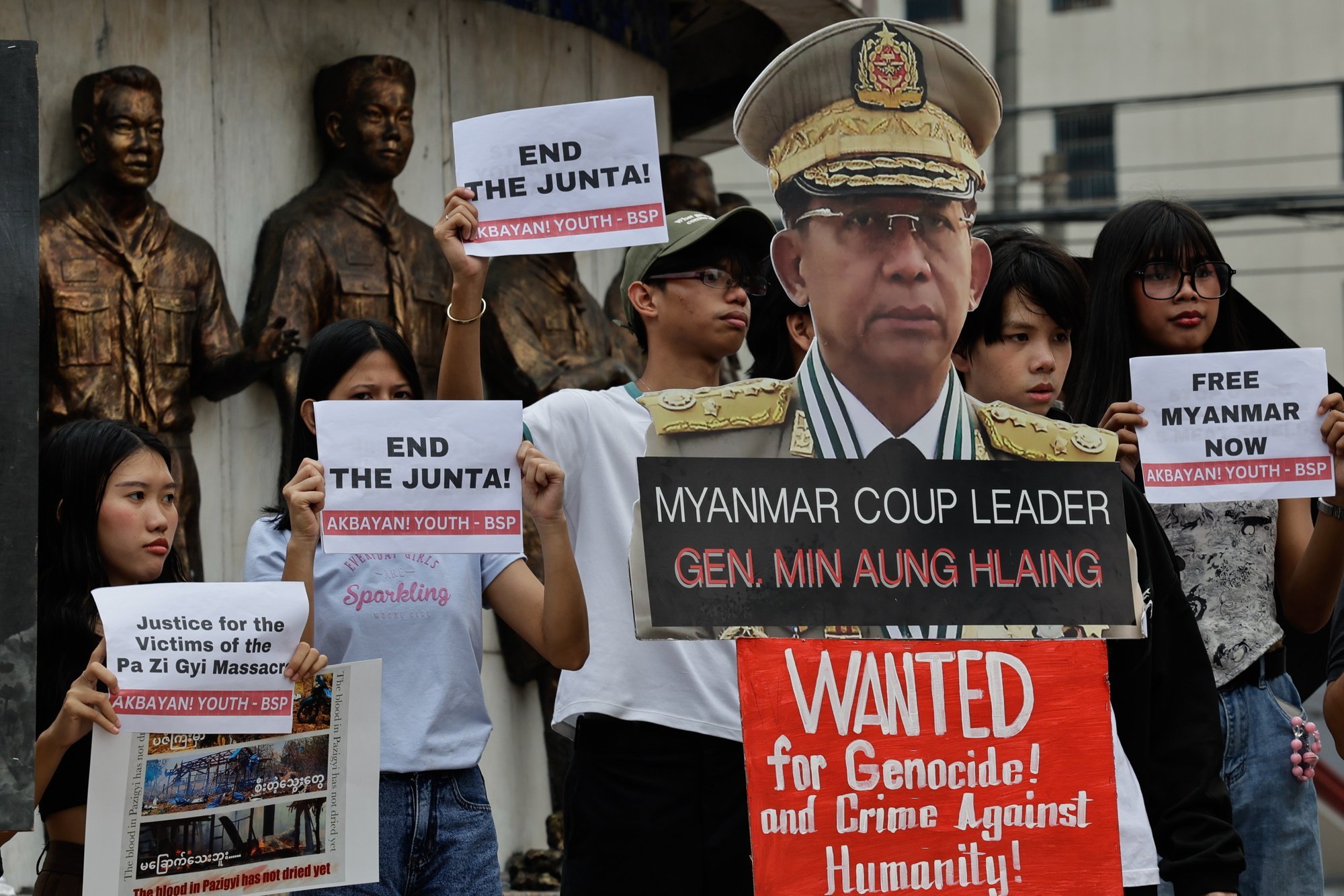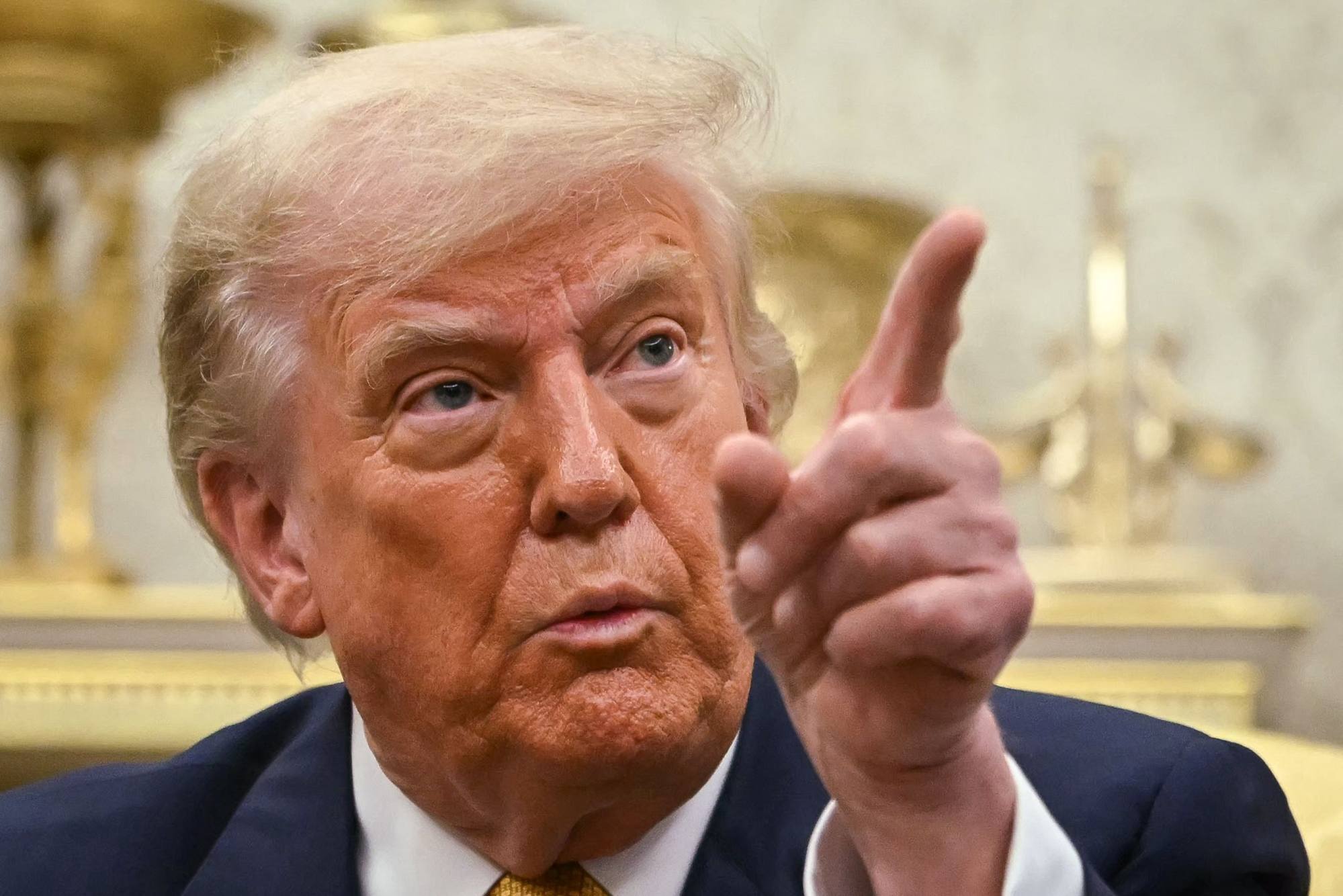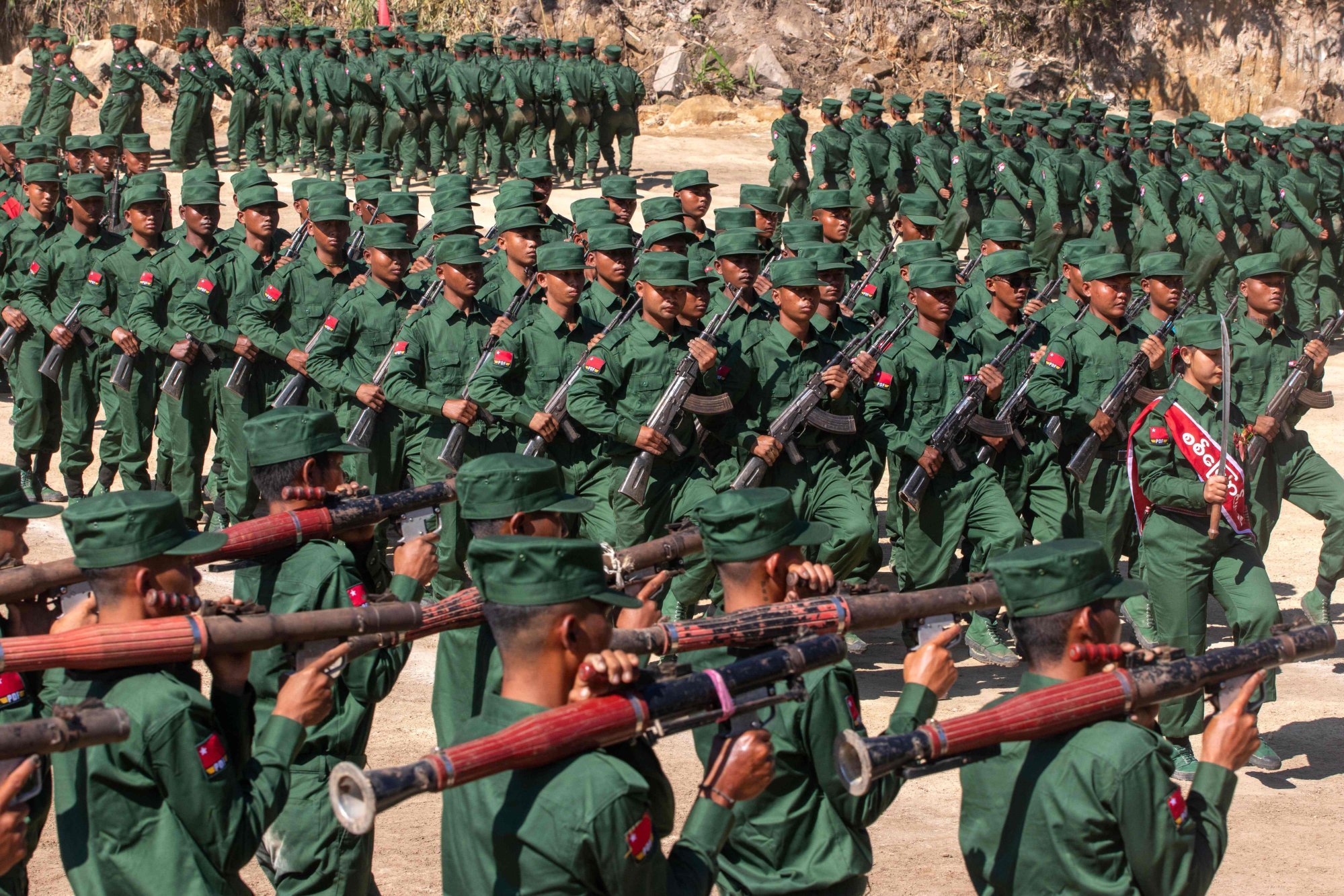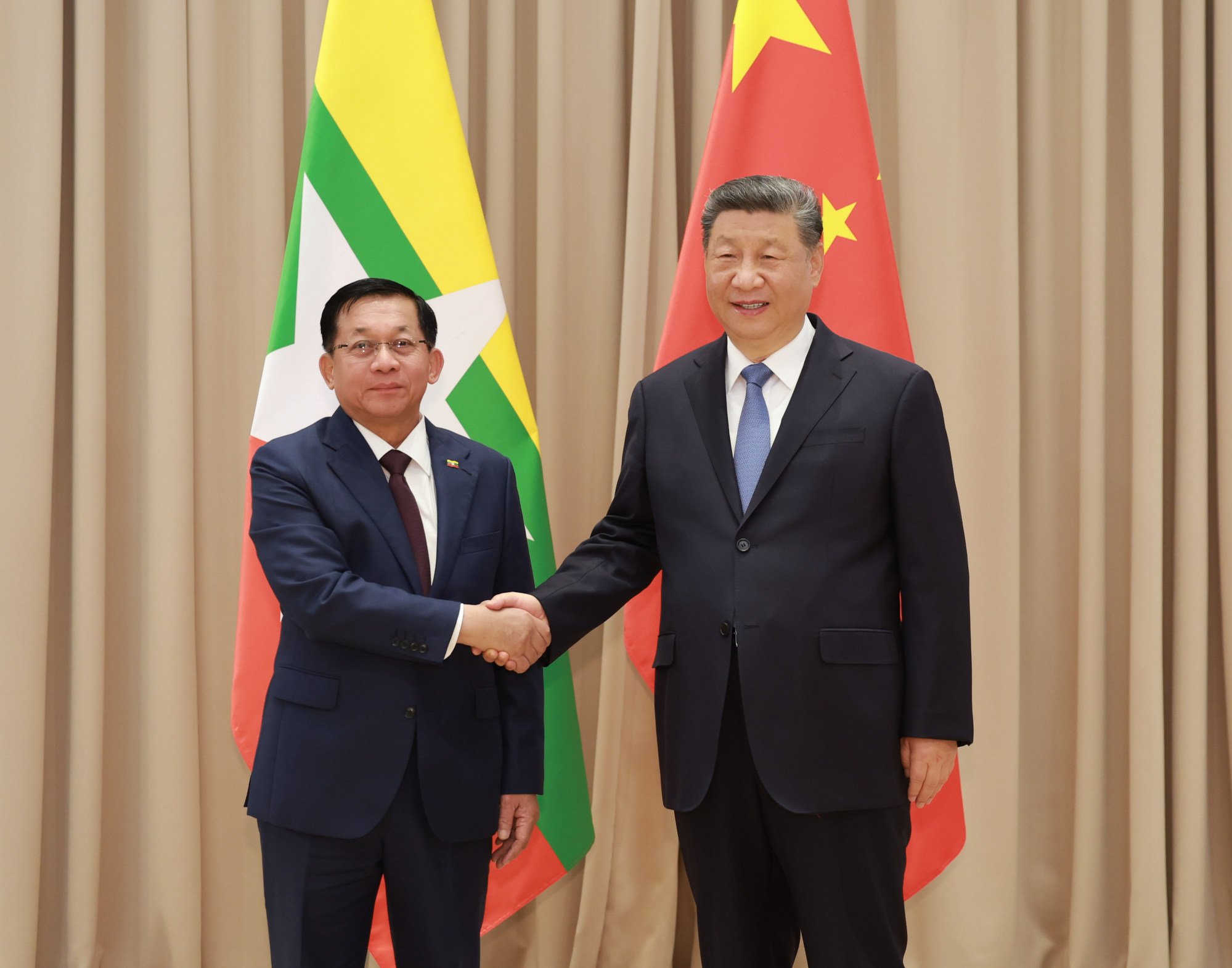Trump’s ‘huge diplomatic gift’ to Myanmar junta via letter sparks concerns
By addressing Myanmar’s leader Min Aung Hlaing over the tariff issue, Trump has ‘unintentionally legitimised’ the junta, analysts say

Myanmar has capitalised on a tariff letter from United States President Donald Trump that could have unintentionally legitimised its junta, according to observers, who warn that the “huge diplomatic gift” risks undermining Washington’s existing policy ahead of the Southeast Asian country’s key election.
While the election is not viewed by Asean as a priority, Naypyidaw is not expected to further delay the polls, particularly given pressure from China.
Trump had earlier informed the junta’s leader in a letter on Washington’s proposed 40 per cent tariff to be imposed on Myanmar, the country’s state media reported on July 11. In response, Min Aung Hlaing proposed a lower tariff of 10 to 20 per cent, with the general’s country slashing its levy on US imports to a range of zero to 10 per cent, according to a letter issued by Myanmar on the same day.
The leader, who assumed power in February 2021 in a coup overthrowing the democratically elected government, also said his administration was ready to send a negotiation team to Washington if needed.
Myanmar’s state media has framed Trump’s letter as an “encouraging invitation” to engage with the US and reported the general as saying he received the letter from Trump with “sincere appreciation”.
Min Aung Hlaing said it was an “honour” to be contacted directly by the US president, according to Global New Light of Myanmar, a state-run outlet. The US and most Western countries have not recognised the junta as Myanmar’s legitimate government.

Zachary Abuza, a professor at the National War College in Washington specialising in Southeast Asian politics and security issues, said the letter to the junta had “unintentionally legitimised” the regime and highlighted the lack of policy coordination within the US administration.
The junta was quick to capitalise on it, Abuza noted, and was dispatching two members of its inner circle, Zaw Oo and Min Min Oo, to Washington to negotiate, even though the US had imposed sanctions against both men.
“It was a huge diplomatic gift for the isolated junta, and something that undermines existing US policy,” Abuza warned. “The decision is likely to be criticised in Congress, where support for Myanmar’s opposition is much higher.”
The administration appointed economist Zaw Oo as a Central Bank of Myanmar director in July, according to local reports, which also identified him as a member of the Myanmar Narrative Think Tank.
Min Min Oo is a member of the Union Election Commission, appointed by the State Administrative Council (SAC) in May 2022.
Unhandled type: inline-plus-widget {“type”:”inline-plus-widget”}
The junta-led SAC was designated by the US for sanctions due to its role in the overthrow of the civilian government and repression of the pro-democracy movement.

Hunter Marston, an adjunct fellow with the Centre for Strategic and International Studies, said as with every action or comment by Trump, it was not clear whether he intentionally sought to legitimise the general.
“He may have asked his chief of staff or run a Google search on who is running the country for all we know. Knowing Trump, he probably did not give a thought to the political implications, that has never been his first priority,” Marston said.
Trump’s move, he said, could undermine the Association of Southeast Asian Nations’ unity and “gives pretence to those who advocate engaging the junta”.
Sean Turnell, a senior fellow in the Lowy Institute’s Southeast Asia programme, noted that Min Aung Hlaing was “shunned, sanctioned, the perennial pariah even in Asean” and that he “is not a man who habitually gets mail adorned with the diplomatic niceties”.
In an article in The Interpreter published by the institute, he added: “And especially not from the erstwhile leader of the free world.”
In March, Min Aung Hlaing declared Myanmar would hold a general election either in December or January 2026, according to the state-run media.
On July 11, Malaysian Foreign Minister Mohamad Hasan said on the sidelines of a gathering of Asean foreign ministers that the bloc agreed that an election in Myanmar was not a priority. Instead, Asean agreed that the priority was to cease all violence in the country “so that all parties can sit together”, and called on the junta to adhere to its peace commitments.

Myanmar’s civil war is now in its fifth year, with pro-democracy fighters and ethnic rebel groups battling the military across the country.
Noting that the junta was “loath” to delay the election any further, Marston said it might take the better part of a year to conduct polls in various parts of the country.
“Beijing has made clear its strong interest in seeing the junta hold elections as a political off-ramp for the SAC, and the junta now hopes the election process could splinter the resistance,” he added.
China had provided technical help and high-level backing for the election, and leaned heavily on armed groups in the north to cease fighting and pursue dialogue with the junta in the hopes of stabilising parts of Myanmar where it held less sway, Marston said.
“Chinese officials have done more than any party to facilitate this election, so it should be seen as a China-backed process.”
Abuza said the junta was “simply under too much pressure from Beijing right now to postpone” the elections.
“That explains the military’s ongoing offensives. They need to capture as much territory as possible so that they will not be embarrassed at holding elections in less than 50 per cent of the country,” Abuza said.
Pointing to China’s more “proactive” role in Myanmar in the past year, Abuza said this was because Beijing knew the junta could not win the war.

The junta has been losing territory to resistance forces while attempting to regain control of key areas. It reportedly captured at least eight outposts in northern Shan state’s Nawnghkio township in May, according to the military’s Telegram channels.
China had dramatically stepped up military help to Myanmar, in particular drones and munitions, as well as dispatched private military contractors, Abuza said.
“[This was] ostensibly to defend Chinese commercial interests but has freed up the military and allowed them to move troops to the front lines,” he added.
China was likely providing intelligence as well and continued to be a “financial lifeline” to the junta, Abuza said.
“Beijing is bankrolling the ‘elections’ and wants the junta to be in the most advantageous position by year’s end to be able to hold polls without being humiliated.”
China maintains close ties with Myanmar’s military and the rebel groups near its border.
During a meeting in December involving Bangladesh, India, Laos and Thailand, Chinese Vice-Foreign Minister Sun Weidong urged Myanmar’s neighbours to support the country’s “peace and reconciliation”.
“All parties should respect Myanmar’s national conditions and … prioritise people’s livelihoods,” Sun said, according to a statement issued by China’s foreign ministry.